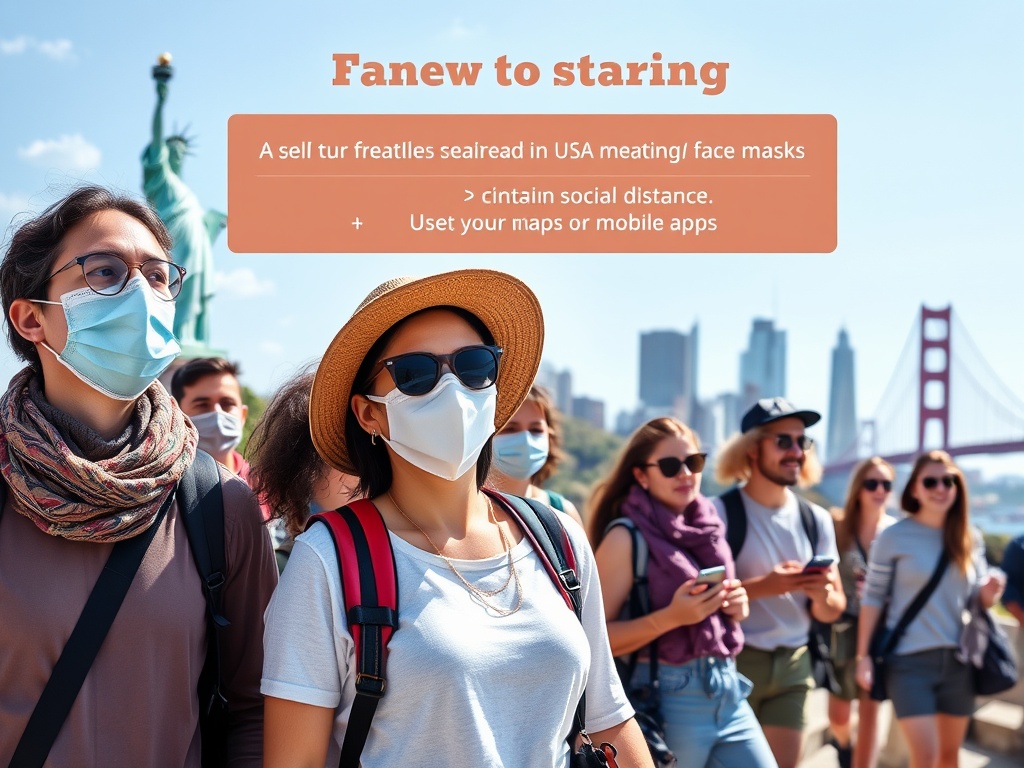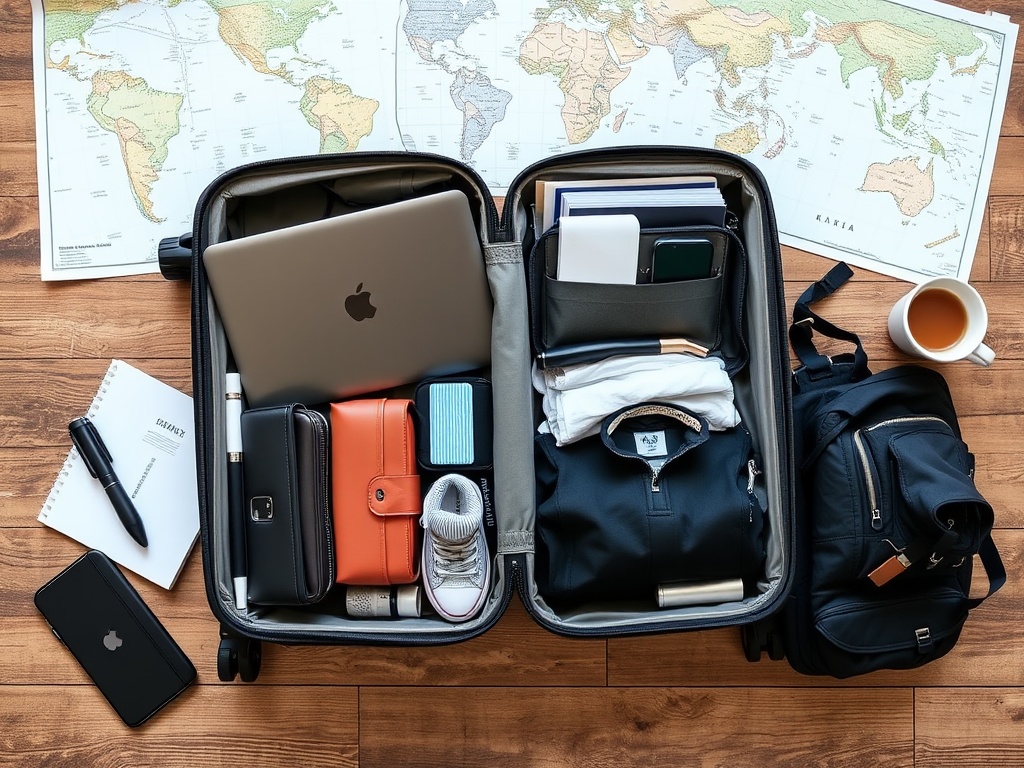Transforming Challenges into Opportunities: The Art of Resilience

The Power of Perspective
In times of struggle, it is our perspective that often determines the outcome of our challenges. Viewing obstacles as stepping stones rather than roadblocks can create a pathway to success. This mindset not only fosters resilience but also empowers individuals to harness their potential, paving the way for personal and professional growth.
When faced with difficulties, consider the following:
- Identify the challenge clearly.
- Reflect on past experiences where you overcame similar challenges.
- Seek out resources or support systems that can provide guidance.
Strategies for Cultivating Resilience
Resilience is not just an inherent trait; it is a skill that can be developed over time. By integrating specific strategies into your daily routine, you can transform challenges into opportunities for growth. These strategies are essential for anyone looking to thrive in both their work and travel journeys.
Here are some effective strategies:
- Practice Mindfulness: Engaging in mindfulness techniques helps in managing stress and maintaining focus.
- Set Realistic Goals: Break down larger objectives into manageable tasks to avoid feeling overwhelmed.
- Embrace Adaptability: Be open to change and willing to adjust your plans as needed.
- Build a Support Network: Surround yourself with positive influences who can offer encouragement and advice.
Resilience in Action: Real-Life Examples
To truly grasp the essence of resilience, one must look at real-life examples where individuals have transformed significant challenges into remarkable opportunities. These stories serve as powerful reminders that struggle can lead to success.
| Name | Challenge Faced | Outcome |
|---|---|---|
| Jane Doe | Job Loss | Started a successful online business |
| John Smith | Travel Restrictions | Created a travel blog that gained a large following |
| Emily Johnson | Health Issues | Launched a wellness coaching service |
Navigating the Unknown: Essential Skills for Adventurous Travelers

Embracing Uncertainty: The Traveler’s Mindset
Traveling often leads us into unpredictable territories, where the unfamiliar can be both daunting and exhilarating. Adopting a traveler’s mindset means embracing uncertainty as a fundamental aspect of the journey. It encourages an openness to new experiences and a willingness to adapt to changing situations. This adaptability is crucial when faced with unexpected challenges, such as sudden changes in travel plans or cultural misunderstandings. By fostering a sense of curiosity and resilience, travelers can transform obstacles into enriching experiences that broaden their horizons.
Critical Thinking: The Key to Problem-Solving
One of the most essential skills for adventurers is critical thinking, which allows individuals to analyze situations, weigh options, and make informed decisions. In moments of crisis, such as getting lost in a foreign city or encountering language barriers, the ability to assess the situation calmly and logically becomes invaluable. This skill not only helps in navigating immediate challenges but also builds confidence for future travels. By practicing critical thinking, travelers can enhance their problem-solving abilities and turn potential mishaps into memorable stories.
Communication: Bridging Gaps Across Cultures
Effective communication is another cornerstone of successful navigation through the unknown. It goes beyond merely exchanging words; it involves understanding cultural nuances and non-verbal cues. Travelers who invest time in learning basic phrases of the local language or understanding cultural etiquette often find themselves welcomed more warmly. Building relationships with locals can lead to authentic experiences and invaluable insights that guide travelers through unfamiliar landscapes. By honing their communication skills, adventurers can create connections that enrich their journeys and foster mutual respect.
Building a Network of Support: Connecting with Like-Minded Professionals
In the quest for success, whether in the realm of work or travel, the importance of establishing a robust network of support cannot be overstated. Surrounding oneself with like-minded individuals can not only provide encouragement during challenging times but also open doors to new opportunities. The journey becomes less daunting when shared with those who understand the unique struggles and aspirations that accompany both professional and travel endeavors.
Building a network is more than just collecting contacts; it involves nurturing genuine relationships that foster collaboration and growth. Engaging with professionals who share similar interests creates a sense of community, where experiences and knowledge are exchanged. This synergy can lead to innovative ideas and solutions, ultimately enhancing your resilience in navigating the complexities of work and travel.
Creating Meaningful Connections
To cultivate a network that truly supports you, it’s essential to focus on creating meaningful connections. Start by participating in professional groups, workshops, or social media platforms dedicated to your field of interest. Engaging in discussions and sharing insights can help you identify individuals who resonate with your values and goals. Remember, it’s the quality of the connections that counts, not merely the quantity.
Additionally, attending conferences and events related to your professional pursuits or travel interests can provide invaluable networking opportunities. These gatherings often attract individuals who are equally passionate, making it easier to bond over shared experiences. When you meet someone who inspires you, don’t hesitate to reach out and initiate a conversation about mutual interests or potential collaborations.
Leveraging Your Network for Growth
Once you’ve established connections, the next step is to leverage your network for personal and professional growth. This involves actively engaging with your contacts by sharing resources, offering assistance, and seeking advice when needed. By fostering a culture of reciprocity within your network, you create an environment where everyone can thrive.
Moreover, utilizing platforms like LinkedIn can help you stay connected and informed about your network’s achievements and updates. Celebrating their successes and offering support during tough times reinforces the bond you share and encourages a robust support system. Remember, your network can be an incredible source of motivation, inspiration, and even mentorship as you navigate the challenges of your work and travel journey.
Ultimately, building a network of support is a strategic endeavor that enhances your ability to transform struggles into success. It empowers you to face challenges with confidence, knowing that you have a community of like-minded professionals behind you, ready to lend a helping hand.
Mindfulness on the Move: Maintaining Balance Amidst Chaos
In the fast-paced world of work and travel, chaos often seems to reign supreme. Juggling deadlines, navigating unfamiliar environments, and adapting to unexpected changes can lead to overwhelming stress. However, cultivating mindfulness can serve as a powerful tool to maintain balance and clarity amidst this turbulence. By grounding ourselves in the present moment, we can foster a sense of calm that enhances our overall journey.
Practicing Mindfulness in Dynamic Environments
Incorporating mindfulness practices into your daily routine doesn’t require hours of meditation; it can be seamlessly integrated into your busy lifestyle. The key is to find brief moments throughout your day where you can pause and connect with your surroundings. This practice not only helps to alleviate stress but also allows you to engage more fully with your experiences.
Effective Techniques for Grounding Yourself
Here are some practical mindfulness techniques you can employ to cultivate balance while on the go:
- Breath Awareness: Take a few moments to focus on your breathing. Inhale deeply, hold for a few seconds, and exhale slowly. This simple exercise can reduce anxiety and bring clarity.
- Mindful Observation: Engage your senses by observing your environment. Notice the colors, sounds, and textures around you. This practice can help you feel more connected to the present moment.
- Gratitude Journaling: Dedicate a few minutes each day to write down things you are grateful for. This habit shifts your focus from stressors to positive aspects of your life.
- Mindful Walking: While traveling, take time to walk mindfully. Pay attention to each step, the feeling of the ground beneath your feet, and the rhythm of your movement.
- Digital Detox: Allocate specific times to unplug from technology. Disconnecting from devices can help you reconnect with your surroundings and reduce mental clutter.
The Benefits of Mindfulness on Your Journey
Integrating mindfulness into your work and travel experiences not only fosters a sense of balance but also enhances your overall well-being. Below is a table illustrating some key benefits:
| Benefit | Description |
|---|---|
| Reduced Stress | Mindfulness helps to lower stress levels by promoting relaxation and emotional regulation. |
| Improved Focus | By centering your thoughts, mindfulness enhances concentration and decision-making abilities. |
| Greater Resilience | Practicing mindfulness builds resilience, allowing you to navigate challenges with a composed mindset. |
| Enhanced Creativity | A calm and open mind fosters creativity, leading to innovative solutions and ideas. |
Incorporating mindfulness into your work and travel journey can transform how you experience challenges and opportunities. By embracing these techniques, you can cultivate a sense of balance that empowers you to thrive amidst chaos.
Financial Freedom: Strategies for Sustained Travel and Career Growth
Achieving financial freedom is a pivotal step in ensuring that your work and travel experiences are not only fulfilling but also sustainable. It’s not merely about accumulating wealth; it’s about creating a lifestyle that allows you to explore the world while pursuing your career passions. By developing strategic financial habits and choices, you can effectively maneuver through the complexities of travel and work, transforming potential struggles into opportunities for growth.
Budgeting: The Cornerstone of Financial Planning
At the heart of financial freedom is a solid budgeting strategy. Establishing a budget helps you understand your income and expenditures, allowing you to allocate funds wisely. This practice becomes essential when considering travel costs, accommodation, and living expenses while maintaining your professional obligations. When crafting your budget, be sure to include savings for emergencies and future travel plans. Allocating a portion of your income towards a dedicated travel fund can make your adventures more feasible and enjoyable. A well-structured budget not only alleviates stress but also creates a sense of control over your financial landscape.
Passive Income: Cultivating Opportunities for Growth
In today’s dynamic world, generating passive income streams can significantly enhance your ability to travel while advancing your career. This could involve diversifying your income sources through avenues such as investments, freelance projects, or creating digital products. By establishing these income streams, you can enjoy the freedom to travel without the constant worry of financial instability. Consider leveraging your skills and expertise to create online courses or write e-books that can generate income over time. The key is to find avenues that align with your passions and professional skills, ensuring that your efforts contribute to both your financial health and personal satisfaction.
Financial Literacy: Empowering Your Journey
Understanding financial concepts is paramount in navigating the complexities of work and travel. Enhancing your financial literacy equips you with the knowledge to make informed decisions, whether it’s regarding investments, savings, or budgeting. Engage with resources such as workshops, webinars, or online courses that focus on personal finance. By arming yourself with this knowledge, you empower yourself to seize opportunities that can lead to career advancement and enriched travel experiences. The confidence gained from understanding financial strategies will allow you to approach challenges with a more resilient mindset.
| Strategy | Description |
|---|---|
| Budgeting | Establish a clear budget to manage income and expenses effectively. |
| Passive Income | Create multiple income streams to support travel and career goals. |
| Financial Literacy | Enhance knowledge of financial principles to make informed decisions. |
In conclusion, by embracing these strategies, you can cultivate a sense of financial freedom that enriches your work and travel journey. With careful planning, adaptability, and a commitment to continuous learning, the path from struggle to success in both your career and explorations becomes not only achievable but also enjoyable.
Cultural Intelligence: Thriving in Diverse Work Environments
In an increasingly interconnected world, the ability to navigate and understand diverse cultures is no longer just an advantage; it is a necessity for success in both professional and travel endeavors. Cultural intelligence, often abbreviated as CQ, refers to the capability to function effectively across various cultural contexts. This skill enables individuals to engage with colleagues, clients, and locals from different backgrounds, fostering collaboration and enhancing communication. As we explore cultural intelligence, it becomes evident that thriving in diverse work environments transforms potential struggles into opportunities for meaningful connections and success.
Understanding Cultural Nuances
To cultivate cultural intelligence, it is crucial to begin by recognizing that different cultures have distinct values, beliefs, and communication styles. Understanding these cultural nuances can significantly impact your interactions and collaborations. For instance, in some cultures, direct communication is valued, while in others, a more indirect approach is preferred. By observing and adapting to these differences, you can build rapport and trust with your colleagues and clients, which is essential for a successful work environment.
Adapting Your Approach
Adapting your approach is a vital component of cultural intelligence. This involves being open to adjusting your behavior and communication style based on the cultural context you find yourself in. For example, when traveling for work or engaging with international teams, it’s important to demonstrate respect for local customs and practices. This adaptability not only enhances your relationships but also showcases your willingness to embrace diversity. In a world where collaboration often crosses borders, the ability to adapt can lead to innovative solutions and shared success.
Moreover, actively seeking feedback from colleagues of different cultural backgrounds can provide invaluable insights into how your actions are perceived. This dialogue fosters an inclusive atmosphere where everyone feels valued and understood, thus paving the way for a more harmonious work environment.
| Cultural Aspect | Direct Communication | Indirect Communication |
|---|---|---|
| Example Cultures | United States, Germany | Japan, India |
| Key Characteristics | Clear and straightforward messages, preference for facts | Contextual meaning, emphasis on relationships |
Ultimately, developing cultural intelligence is not merely about learning different customs; it is about expanding your worldview and appreciating the richness that diverse perspectives bring to the table. This growth mindset enhances your ability to navigate complexities, turning challenges into opportunities for collaboration and innovation.
Goal Setting for Wanderlust: Crafting a Roadmap to Success
As the desire to explore the world grows, so does the need for a structured approach to achieve your travel ambitions. Setting clear goals is essential for transforming your wanderlust into a reality. This process not only provides direction but also acts as a motivational anchor that keeps you focused amidst distractions. By crafting a comprehensive roadmap, you can navigate through the complexities of work and travel, allowing you to seize opportunities that lead to a fulfilling journey.
Envisioning Your Travel Aspirations is the first step in effective goal setting. When you take the time to visualize your travel dreams, you lay the foundation for actionable plans. Consider what destinations ignite your passion and why these places are significant to you. This personal reflection helps in establishing goals that resonate with your authentic self and creates a deeper connection to your travel experiences. Additionally, identifying the why behind your aspirations fuels your motivation and commitment.
Once you have a clear vision, the next phase involves breaking down your objectives into manageable milestones. Instead of overwhelming yourself with a long list of destinations or experiences, focus on creating a timeline that incorporates both short-term and long-term goals. For instance, you might set a short-term goal of researching a specific country and planning a weekend getaway while simultaneously working towards a long-term aspiration of taking a sabbatical to travel across multiple continents. This method not only makes the journey less daunting but also allows for celebration of small wins along the way.
Balancing Work and Travel is another crucial aspect of your roadmap to success. As you set your travel goals, consider how they align with your professional aspirations. This synergy between work and wanderlust is vital in ensuring that neither aspect of your life overshadows the other. Explore opportunities for remote work, flexible schedules, or even sabbaticals that can facilitate travel without compromising career growth. By integrating your professional life with your travel ambitions, you create a harmonious balance that enriches both experiences, leading to a more fulfilling journey.
Ultimately, your ability to adapt your goals as circumstances evolve is what solidifies your success. Embrace the unexpected twists and turns that come your way, and be open to recalibrating your plans as needed. Remember, the journey of transforming struggle into success is not a straight path; it requires resilience and flexibility. As you craft your roadmap, keep in mind that the destination is just as important as the journey itself, as every experience adds to your personal growth and enriches your story.



